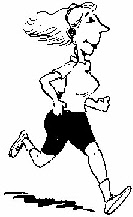

Make a point of visiting us weekly!

Return to Becoming a Learner CONTENTS PAGE
Page 11A: The Learning Process - Memory (Knowledge) - CONTINUED
Part 2: The Adventure of Learning
Continued from previous page
5. We learn when we see the context.
- We emphasised this on Page 8 when we talked about getting an overview of the course.
5. We learn when we see the context.
-
- Sodium Chloride is another name for common salt. What do they put on the roads to melt the ice? Salt. What do you put on your roast dinner to bring out the flavour? Salt Do you know what they used to preserve meat with before they had refrigerators? Salt. Now I didn’t describe salt to you but I’ll bet you’ve been imagining this white crystalline powder that crops up so often in life. You know it in life and it is now so ordinary you don’t give it a thought. In the context of life you know all about salt! But you didn’t once when you were young! All learning is like that.
- If you wanted to memorise this page you would identify this section as section 5 under the heading “The Mechanics of Memory” and that is just one part of “Page 11, The Learning Process – Memory” Seeing the bigger picture would help you state that so far there are five things in this part.
6. We can use word tools to remind us
- I can hardly look at a rainbow today without thinking, “Richard of York gained battles in vain”, a ‘mnemonic’ that tells me the colours of the rainbow are Red, Orange, Yellow, Green, Blue, Indigo, and Violet. (A mnemonic is simply a memory aid that jogs the memory. It can be letters, a phrase or a rhyme)
- We can use mnemonics to help with spelling, e.g. “I would accept your excuse except the part about losing your watch.” Learn the phrase and the right words follow.
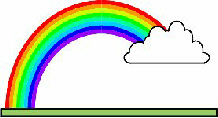
7. Memory is stimulated by reminders
- Write mnemonics, phrases to be learnt etc. on pieces of paper around the house where you see them and are reminded of them. Replace them when the item is well learned.
- Put things on calendars, in diaries or journals to remind you.
- If you are on a course where you listen to a lecturer, either on a sheet of paper, on an iPad or laptop, lay out two columns, the right hand one twice the width of the left hand one. As the lecture goes on jot down headings or key points in the left hand column and leave the right hand column for explanations. When you revise, cover up the right hand column and then explain the headings and key points in the left column. Later cover both columns and reveal just the first heading and try to remember the next headings thus getting the whole structure of the lecture. Do it on the same day as you took the notes and repeat it next day. It only takes a few moments to create these reminders that reinforce memory.
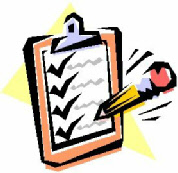
8. Memory is helped by anchors
- To anchor something in our mind, sometimes we need to do something to anchor it or make it memorable. Imagine you have a project to do over the next week. At some point you were relaxing and you suddenly started to get ideas for the project. Anchor the ideas – grab a piece of paper and list the ideas. Stick it on the fridge door or on a notice board to pick up later when you want to sit down and write. If you don’t anchor it you may find yourself later struggling to remember what you have thought previously.
- Sometimes an anchor can just be speaking it out. Someone rings you and you agree to meet next day. After you put the phone down, jot it on a piece of paper by all means, but also speak it out three times – “Tuesday, 10.30am meet K”
9. Memory is helped by Understanding
-
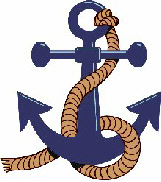
Health and Memory
The following things apply:
The following things apply:
1. Tiredness diminishes memory – make sure you sleep well.
- Know your body, your mind may not work so well first thing in the morning in some, but best early in the day for others – learn to read your abilities.
- Take breaks to revive yourself (work for 20 to 50 minutes and then have a 5 to 10 minute break)
2. Stress diminishes memory – resolve conflicts in your mind, be at peace.
3. Hunger diminishes memory – eat regularly and well (wisely).
4. Lack of physical exercise diminishes memory – take regular exercise.
3. Hunger diminishes memory – eat regularly and well (wisely).
4. Lack of physical exercise diminishes memory – take regular exercise.
- Exercise also combats stress
- Aerobic exercise is best – fast walking, jogging, swimming, cycling & dancing
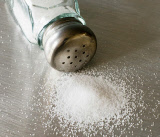
- And how about distinguishing practice and practise: “S is the verb, C is the noun, that’s the rule that runs the town”, so - A doctor practises medicine at his practice.
- Or when finishing letters: “Never two s’s together” so it is Dear Sir.... yours faithfully, and Dear Mrs. Black.... Yours sincerely, but NEVER Dear Sir... yours sincerely.
- Do you know the difference between stalagmites and stalactites? “Tights are always falling down!!!” i.e. stalactites come down from the ceiling, stalagmites go up from the ground.
- You have trouble knowing your left from your right? “You can only make an L with your left hand”
- How about changing the clocks twice a year? “Spring forwards, fall backwards” (Fall = Americanism for Autumn)
- So, if you have to remember a list, think up a phrase where the first letter of each word matches the first letter of each of the things in your list, or the pgrase instructs you.
This page is continued on Page 11B
Top of page
Back to page 11 - the 1st part of “The Learning Process - Memory”
On to page 11B - the 3rd part of “The Learning Process - Memory”
Top of page
Back to page 11 -
On to page 11B -
